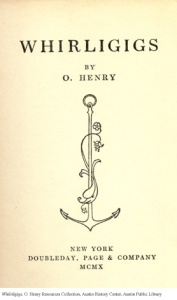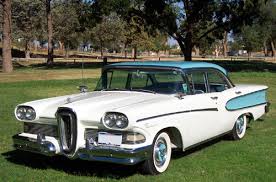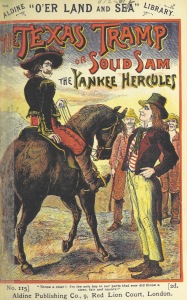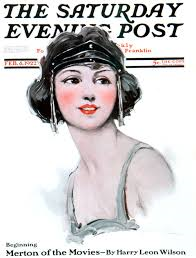ANSWERS TO OUR SECOND BIG LIT QUESTION
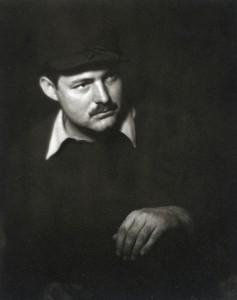
***
You want answers?
We have answers! At least, answers for our big Hemingway Question, #2 in a series designed to probe the mind of today’s literary community on a variety of topics. Toward that end we asked writers and editors from varied backgrounds to answer our question. We received responses from critics, story writers, novelists, zinesters, journalists, and readers; giving us, we hope, a broad view of Hem’s legacy now. Please google the individual names for bios, works, and websites. Lavish thanks to all who participated.
(Be sure to view the rest of our Hemingway celebration at our main site.)
QUESTION
“What’s your opinion of Ernest Hemingway circa 2016? Is he still relevant?”
***
Daniel Menaker, writer/editor
His short, simple sentences still have influence on many writers. Like that sentence. And that.
***
Wred Fright, writer
Yes, Hemingway is still relevant. For example, we keep having him write short stories even though he is dead. Look at “For Sale. Baby Shoes. Never Worn.” Hemingway probably never wrote that, but we like to think he did, and that urban legend spawned a new literary form of six word texts. It’s kind of a stupid form, but it illustrates our desire for more Papa.
***
Emerson Dameron, writer/performer
The character that Ernest Hemingway played in his stories is a relic – to imitate that character’s shtick now makes one appear foolish at best. But the writer’s ideas about economy of words apply heavily to digital media (where Faulkner’s “walls of text” wouldn’t build much of a readership), so, at least in a technical sense, Hemingway is more influential than ever. There is also an understated-if-not-unspoken sadness in his style that still speaks to people who can read past the Swashbuckling.
***
T.C. Boyle, fiction writer
Great writing is always relevant, as is revolutionary writing. Hemingway–especially in his early great novels and short stories–succeeds on both counts.
***
Luc Sante, writer
Hemingway is a great writer and his best works (In Our Time above all else) will never stop being relevant. Once again, though, he’s not the ideal model for young writers today. In my youth the issue was his toxic masculinity, but today the biggest problem is his style, which lacks context. By way of Gertrude Stein and Sherwood Anderson, he brilliantly cleared the Augean stables of purple prose, the legacy of the nineteenth century, and brought a new clean-line astringency that was to become the language of modernism. Today’s young writers seem confused by what style even is. Between writing-as-therapy, Strunk & White, and facebook, people seem to think that flat and bland is the default–and that the only alternative is purple. Because Hemingway’s minimalism can be so easily mistaken for flat-and-bland, I would steer the young away from him.
***
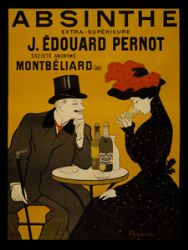
***
Margot Livesey, author
Yes! As a writer, reader and teacher, I find Hemingway piercingly relevant. He writes about war, violence and loneliness with a poetic precision that remains unrivalled.
***
Mary Doria Russell, novelist
He never would have gotten an agent today. The manuscripts he submitted needed a great deal of editorial shaping and that doesn’t happen anymore.
***
Elif Batuman, writer
Son, this question makes no sense. Literature is relevant to the human condition—it doesn’t have an expiration date. You know what has an expiration date, is discussions about relevance. People go around saying stuff like “Throw Pushkin overboard the Steamship of Modernity,” and then 100 years later they look like assholes because everyone is like “Ha ha, steamships.” Is Hemingway relevant! Ha! Would someone who wasn’t relevant in 2016 be featured on so many iPhone cases?
***
Scott Cannon, story writer
Hemingway invented a new style of writing unlike anything that came before or since. Asking if his work is still relevant is like asking if Van Gogh’s “Starry Night” is still relevant. Was it ever relevant? Relevant to what?
I love striking imagery, but sometimes get tired of writers trying to say everything in a way that it’s never been said before. I read one such story in this year’s Best American. When I finished it I felt like I had a bad head cold. The only thing for it was to read “Big Two-Hearted River” again. “Nick looked at the burned-over stretch of hillside, where he had expected to find the scattered houses of the town and then walked down the railroad track to the bridge over the river. The river was there.” The river was there. With that, my head felt clear once more, but I read the rest of it through again anyway. Still not one word on what Nick Adams looks like, but somehow I have a pretty good idea.
A friend once told me how she felt reading Hemingway for the first time as a young girl. “It was like sex,” she said. What more can I add to that?
***
“He looked back. The river just showed through the trees.”

“He wished he had brought something to read. He felt like reading.”
***
Jinnie Lee, writer
His writing towards his female characters were rather unkind. Haven’t thought much of Hemingway since high school, but I hope his works are not considered required reading anymore.
***
Douglas Lain, writer/publisher
Twenty years ago, when I was starting out writing, I tended to side with Kurt Vonnegut against Hemingway. You may recall that in Vonnegut’s play “Happy Birthday Wanda June” Papa Hemingway is an object of derision. Vonnegut mocks Hemingway for his hypermasculinism, but today I find myself wondering if hypermasculinity can sometimes be a good and necessary thing. I recall that Hemingway’s masculinity always came along with an awareness of human vulnerability.
Anyhow, because of my liberal bent and because of when I was born, I haven’t spent much time reading Hemingway. I know a few of his stories, but not many. Googling up a Hemingway quote I find this one, from For Whom the Bell Tolls:
“The world is a fine place and worth the fighting for and I hate very much to leave it.”
This seems relevant to me.
***
Anne Leigh Parrish, novelist and short story writer
Absolutely. Hemingway wrote about terror, fear, having no control over events in battle, and the randomness of violence. The recent mass shootings in Orlando confirm that the world he described, though far away in time and place, is still horribly alive, sustained by madmen who hide behind the rhetoric of hate. Hemingway also wrote about the macho culture of men needing to dominate their world. This, too, is very much in evidence today. There are many cultures where men feel entitled to the subservience of woman and anyone perceived as weak or less worthy.
***

***
Andrea Gregovich, writer/translator
I’m a feminist (sort of, kind of) but my favorite writers are almost always men. I love to get lost in the nitty-gritty details of the male gaze, to really resonate, as a woman, with the world as men see it. Why shouldn’t I? Men are half of the human experience, why wouldn’t I want to figure out how they tick? I love how they are capable of writing in such loving detail about things like cars, wars, video games, machinery, hunting, fishing, the female body. Does that make me a bad feminist? I’m not saying there isn’t an abundance of asshole male writers about, but I find plenty whose outlook on everything is beautiful to me.
But even so, I could never much get into Hemingway. His minimalism is so blunt and tightly written, I can admire his prose but can never feel much empathy for his characters. He has no interest in wining and dining me with a poetic experience of male perspective. He is simply so good at his craft that he is always right, never unstable or vulnerable, and that has just never resonated with me as a female reader, even one with a secret jones for the male gaze. I’m sure there are ways in which his themes and metaphors are still very much relevant in contemporary society and all that, but what good are they if I just can’t dig it?
***
Christopher Merkner, writer/teacher
I find Hemingway’s short stories to be rare and distinctive examples of heavily crafted literary humor and absurdity. His commitment to melodramatic subtext commits him to a superficial ridiculousness in character and speech that is very slick, tricky to follow and replicate, and perhaps incapable of losing its critical relevance for readers of short fiction.
***
Justin Taylor, author
Relevant to who or what? To me personally? Sure, I guess. Not the novels so much, but I always preferred the stories, so this doesn’t qualify as a change in relevance per se. without him you wouldn’t have Andre Dubus or Raymond Carver, to say nothing of conscientious objectors like Donald Barthelme. I probably read all those guys more often than Hemingway himself, but it’s good to get back to the source sometimes, and if you haven’t read him in a while he’s almost definitely funnier and more self-aware than you remember. Far more than he typically gets credit for, at any rate.
***
Kelly Cherry, fiction writer and poet
Hemingway’s work is certainly still relevant and will continue to be so for some time. He wrote some wonderful stories; they are stronger than his novels. Readers will continue to read those stories and learn from them. Critics and literature professors are not ready to give up on using him as an exemplar example. Or is the question about Hemingway rather than his work? Despite his heroism in war, he was psychologically fragile. In any case, the definition of “masculinity” has shifted dramatically. Men cook and clean and help the kids with homework. Many men still cheat on their wives, but by no means all of them. Men and women work together. Yes, the men still get paid better, but sooner or later the women will catch up. (Not, however, in my time.) In short, the stories will continue to be celebrated; the macho image is no longer of use.
***
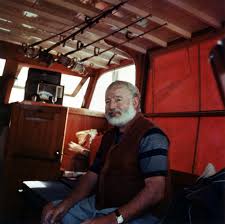
***
Laurence W. Mazzeno, scholar
No American writer save perhaps Mark Twain has entered into the cultural consciousness of the nation as Hemingway has. His works remain in print. His life continues to fascinate the public (witness, for example, the popularity of journalist-turned-professor Paul Hendrickson’s widely reviewed 2011 biography Hemingway’s Boat). Why? Because he has transcended the narrow boundaries of “author” to become a cultural icon. While he may continue to be vilified by intellectuals (and many women) the persona he created for himself remains admired by those who uphold what might be called “traditional male virtues.” Today, perhaps, that isn’t what one ought to be remembered for, but it’s likely Hemingway wouldn’t mind. Instead, he’d probably laugh uproariously at the gentle parody that has used his image to sell Dos Equis beer: he remains, for some at least, “the world’s most interesting man.”
***
Jeff Brandt, writer, book lover, cinephile
Hemingway is as relevant in 2016 as ever. People seem to have a misconception of Hemingway as a simple-minded man’s man. He is anything but. When you really read and analyze Hemingway, he is deeply conflicted about masculinity, femininity, what they mean and how much they matter. In The Garden of Eden, he also wrote about polyamory decades before that was a coined term or increasingly popular lifestyle. I also believe there is a timeless and deeply affecting appeal to his stories of comradeship in war.
***
Boris Kachka, journalist
Well, I think the implication is that Hemingway might have gone out of style. That may be so, but I don’t think relevance is quite the same thing as fashion. Hemingway was possibly overrated once and now, not so much. Does that make him antediluvian? Certain of his opinions and values are, but so are most of Shakespeare’s, unless you consider the state to be the body of the king. The question of how good Hemingway is should be separate. I think he’s…pretty good! I’ve learned a lot from reading him, and so have writers we consider to be more relevant, like Joan Didion, who started out by retyping his work to learn its rhythms. I wish he’d had a sense of humor, but no writer gives me everything I want (well, maybe Nabokov). And more globally, if the question is whether he should be taught, emulated, etc., the answer is yes. With caveats, but no writer should be taught without caveats.
***
Robert McCrum, writer and critic
Going round for round with posterity, Hemingway has taken some knocks, as he did in his lifetime. but for me he’s still in the ring as one of the 20th century masters of American prose. The essential volumes on my Hemingway shelf are The Sun Also Rises, and my Everyman edition of his Collected Stories.
***
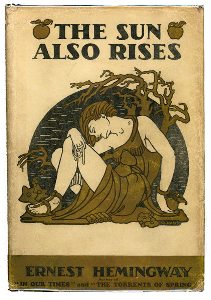
***
Samuel Stevens, writer/blogger
Hemingway is my favorite novelist, my second favorite author after Ezra Pound probably. It’s funny though, for all the adoration the New York chattering class has of him, he was never one of them. He, like his contemporaries, was part of an entirely different “scene.” Hemingway’s style was influential, which has been a double edged sword. On one hand, you have writers like Cormac McCarthy who’ve gone one step further than even Papa himself in terms of style with tremendous effect. On the other, you have Raymond Carver who practiced the “iceberg” method with underwhelming results. The difference is, Hemingway had the substance to make his style work. That’s the best lesson with Hemingway.
***
John Colapinto, essayist/novelist
You’ve hit on the one author I feel most uncomfortable making a public statement about. As a Canadian, I’m tempted to give full play to my native repulsion for such grandiosity, self-advertisement, over-compensating manliness, and stretches of execrable, self-parodistic writing—and simply offer Nabokov’s famous put down (“bells, balls and bulls”) and E.B. White’s assessment of the late Hemingway (“the farting of an old horse”). But then there is The Sun Also Rises, one of the most original and hilarious and moving novels in existence. And the ravishing Paris memoir, A Moveable Feast which is a masterpiece, despite its unforgivable, ignoble betrayal of his “friend” Fitzgerald (over Scott’s supposed insecurity about his sexual performance of all drearily predictable things). So, I mean, how can anyone feel about old Ernie in 2016? Deeply, deeply divided. Embarrassed and thankful.
***
Liesl Schillinger, critic/translator
Yes, Hemingway’s still relevant! The question is almost like asking, “Is the male ego still relevant?” Hemingway strikes me as a “method” writer. That is: he himself inhabits the characters he portrays, at least, the male leads. So the vitality of his prose gets a boost from his personal myth. As I write this, I’m finishing my friend Lesley Blume’s fascinating book on how Hemingway became Hemingway—Everybody Behaves Badly—about his dogged pursuit of fame, and his compulsion for literary innovation. His conviction in himself is breathtaking, all the more so because it was justified. He did innovate. I challenge any 20-year-old to read The Sun Also Rises and not find it arresting and fresh. By way of contrast–I love F. Scott Fitzgerald, but I associate him with nostalgia. Hemingway, who was Fitzgerald’s age, writes as if he were a generation younger. He still reads like he’s news.
***
Scott Beauchamp, writer/journalist
So much of the “bells, balls, and bulls” criticism of Hemingway – of his homemade stoic code that he could never quite live up to, his cult of practical knowledge, and his flirtation with nihilism – ignores his technical achievements as a writer. Those achievements are what keeps Hemingway relevant. Take the opening paragraph of A Farewell to Arms. It isn’t simply the minimalism that gives the descriptions energy, but, as Hugh Kenner pointed out, the feeling that time has outrun the language in a torrent, and “what memory and prose have fixed is the brief being of what never again will be.” Politics, gender, sexuality aside, it’s this expression of temporal impermanence that continue to give Hemingway’s prose strength and poignancy.
****
Hemingway’s Nobel Acceptance Speech
****
THANKS EVERYONE!!
Be sure to read this month’s other “Hemingway Day” features.
–“Inspired by Death in the Afternoon,” by Jess Mize.
–“Diminutives,” a short story by Samuel Stevens.
-Our editors’ journey “Searching for Hemingway.”
***
(Main Hemingway photo by Helen Pierce Breaker.)
Our first Big Lit Question is available here.

